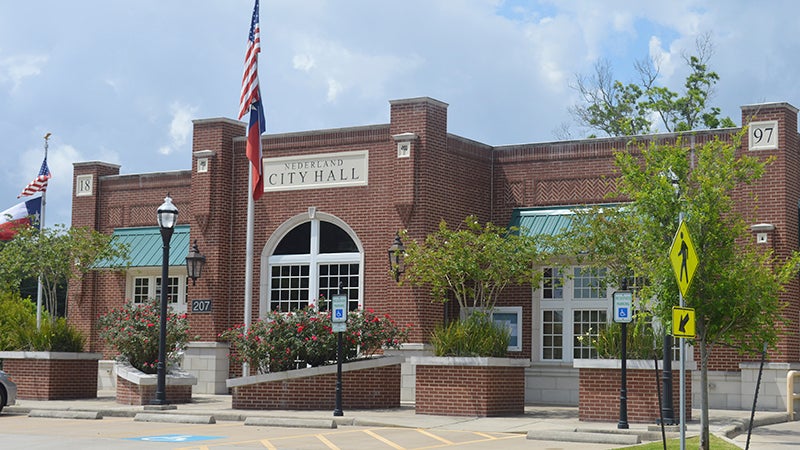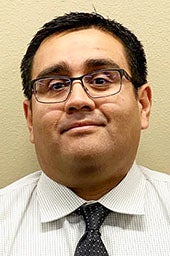CHRIS DUQUE — Take walk through Nederland budget, utility charge process
Published 12:09 am Monday, August 3, 2020
|
Getting your Trinity Audio player ready...
|
The City of Nederland regularly receives comments or questions regarding CITY FINANCES, UTILITY RATES and CITY TAXES.
Over the next two months, I will discuss these topics.
The current City budget is $24,583,925, which is allocated throughout various funds (General, Police Narcotics, Hotel/Motel, Equipment Replacement, Streets Improvement, Water and Sewer, Solid Waste, Central Dispatch, etc.).
The City’s budget officer is the city manager. And the City operates under a fiscal year from Oct. 1st to Sept. 30.
The City of Nederland operates under a City budget that is developed over a four-month process. In late May, budget documents are distributed to the City’s department heads.
The department heads are responsible for proposing their annual budget line-item by line-item, as well as any requests such as additional staffing or new vehicles/equipment.
In mid-June, the department heads meet with the city manager, finance director and human resources director to review the proposed budget documents. During these meetings, the city manager finalizes a recommendation on the line-item allocations and the various departmental requests.
Following the meetings, the city manager prepares a final draft budget that is presented to the Nederland City Council at a budget workshop in July. At this workshop, each department head discusses their proposed budget and addresses any questions or comments from the City Council regarding their department.
At the end of the July, the City receives the certified taxable values and tax rate information from the County. At the first City Council meeting in August, the city manager formally presents the proposed budget, a budget public hearing is scheduled and tax rate public hearing(s) is scheduled.
A copy of the proposed budget is posted online and is available for review at City Hall and the Library. Following the public hearings, the budget and tax rate are approved by the City Council in September.
The budget can be amended during the fiscal year via a budget amendment ordinance.
The city manager and finance director work with department heads on tracking their expenditures throughout the fiscal year. Monthly, the City Council is provided a financial report, as well as a check register.
The City Council has adopted a purchasing policy that departments must follow for all purchases. In addition, the city manager and finance director serve as the City’s investment officers and must take training mandated by the State of Texas.
After a fiscal year ends, the City’s independent auditor begins the process of auditing the City’s financial statements; this process is completed by March of the following year.
The auditors present the audited Comprehensive Annual Financial Report to the City Council for acceptance; a copy of the report is posted on the City’s website.
The City has two enterprise functions that are not supported by taxes but by user fees – Water & Sewer and Solid Waste.
These City services are paid via utility fees (the “water bill” you pay monthly). The water, sewer and solid waste services are programmed to function as a business, which requires diligent tracking of expenditures and revenue to ensure the services do not operate in a deficit.
During the budget process, the city manager and finance director evaluate the enterprise function expenditures and determine if adequate revenue is available or if utility rates must be adjusted. Utility rate adjustments must be approved by the City Council and are effective Oct. 1.
It would take an extraordinary circumstance to lead to a utility rate adjustment in the middle of fiscal year. Many of the enterprise function expenses besides personnel expenses are contracted, such as the raw water supply contract with the LNVA, landfill fees, etc.
The utility funds are also the most vulnerable to unpaid bills; this is why staff spends considerable effort on the deposits.
Unpaid utility bills represent losses that are absorbed by the other utility customers; the unpaid bills represent incurred expenses to include raw water, treatment of the water, etc.
The City attempts to work with customers who have extenuating issues delaying or preventing them from paying their utility bills. And the City is moving forward with alternative methods to pay your bill – online bill pay and payment over the telephone.
Next month, we will discuss TAXES and the proposed City budget.
The City budget and the proposed tax rate will be presented at the Aug. 10 City Council meeting.
If there are any questions regarding City operations, please contact the city manager’s office at 409-723-1503.
Chris Duque is city manager for Nederland. He can be reached at CDuque@ci.nederland.tx.us.







